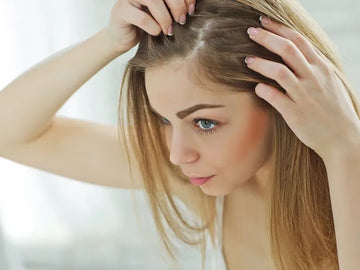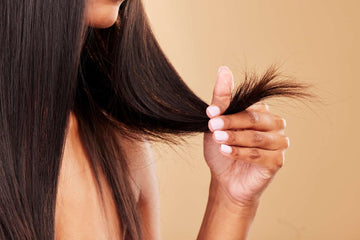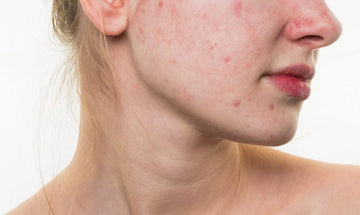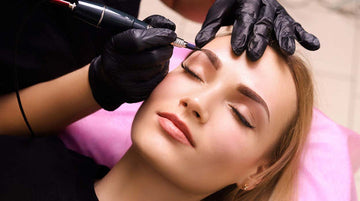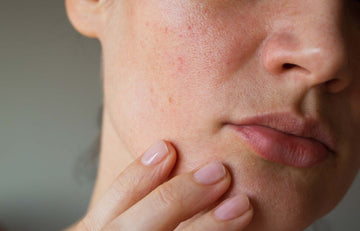Hair loss is a common concern for both men and women, often causing frustration and a loss of confidence. From stress and poor nutrition to the wrong choice of hair care products, there are numerous factors behind hair thinning and shedding. The good news is that with consistent daily care, a balanced diet, and the right products, it’s possible to manage and even reduce hair loss. In this guide, we’ll break down the key causes of hair loss, share actionable daily care tips, and highlight essential factors in choosing the right products for healthier hair.
Understand the Causes of Hair Loss: Address the Root Issue
Before tackling hair loss, it’s essential to understand its root causes. Hair shedding isn’t always about one single reason—it’s often a combination of factors. Genetics, for example, plays a huge role, especially in male and female pattern baldness. If family members have experienced hair thinning, chances are you might face similar challenges.
Hormonal changes are another common trigger. Pregnancy, postpartum recovery, and menopause can significantly affect hair health. Meanwhile, stress can push hair follicles into a “resting” phase, resulting in more shedding than usual. On top of that, poor dietary habits and deficiencies in vitamins like biotin, iron, and zinc weaken hair follicles, making them more prone to falling out.
Additionally, using harsh hair care products that contain sulfates, parabens, or excessive silicones can strip your scalp of natural oils and irritate your skin. By identifying the specific causes affecting you, you’ll be better equipped to address them effectively. For targeted solutions, take a look at our Hair Treatments page.
Build a Healthy Scalp Environment: The Key to Strong Hair
Healthy hair starts with a well-nourished scalp. Think of your scalp as the soil for a plant—if it’s dry, clogged, or inflamed, your hair won’t thrive. Many people focus on the hair strands while overlooking the scalp's condition, but it’s the foundation of hair health.
To maintain a healthy scalp, cleanse it regularly using a shampoo that suits your hair type. Avoid overwashing, as it can strip away natural oils, but don’t underwash either, as buildup can clog hair follicles. During washing, gently massage your scalp with your fingertips. This simple act improves blood circulation, helping to deliver essential nutrients to your hair follicles.
If you notice persistent itching, flakiness, or redness, it could be a sign of an underlying issue like dermatitis or a fungal infection. In such cases, consult a dermatologist for proper treatment. Lastly, consider using a scalp serum or oil infused with natural ingredients to maintain optimal moisture levels and support hair follicle health. To explore effective products, visit our Shampoo & Conditioners page.
Choose Hair Products That Actually Work for You
Not all hair care products are created equal, and using the wrong ones might make hair loss worse. When choosing a shampoo or conditioner, always check the ingredient list. Look for key ingredients like biotin, keratin, and vitamin E, as these actively support hair strength and reduce breakage.
Avoid products loaded with sulfates, parabens, and artificial fragrances, as they can irritate the scalp and strip away natural moisture. Instead, go for gentle formulas specifically designed for thinning or fragile hair. Conditioners infused with natural oils such as argan oil or jojoba oil are also excellent for adding hydration and preventing breakage.
Boost Hair Health Through Proper Nutrition
Your diet plays a massive role in hair health. Hair is primarily made of protein, so consuming enough of it is crucial for maintaining strong and healthy strands. Foods like eggs, lean meats, and beans are excellent protein sources.
Iron deficiency is another frequent culprit behind hair loss. Low iron levels prevent hair follicles from receiving enough oxygen, which can slow down hair growth. To counter this, include iron-rich foods like spinach, lentils, and red meat in your meals.
Omega-3 fatty acids are equally important, as they nourish hair follicles and prevent inflammation. Fatty fish such as salmon and nuts like walnuts are great sources of omega-3s. Lastly, ensure you’re getting enough biotin and zinc, both essential for hair strength and growth.
Key Hair-Boosting Foods:
- Eggs: Rich in protein and biotin
- Spinach: Loaded with iron and folic acid
- Salmon: Packed with omega-3 fatty acids
- Nuts and Seeds: Provide vitamin E and zinc
By maintaining a well-rounded diet, you’ll not only improve your overall health but also create the ideal environment for healthy hair growth.
Manage Stress Effectively: A Hidden Hair Loss Trigger
Stress is an invisible enemy when it comes to hair health. Chronic stress can disrupt the natural hair growth cycle, causing hair follicles to prematurely enter the resting phase. This results in increased shedding, even months after a stressful event.
Fortunately, stress management is something you can actively work on. Practices like meditation, yoga, and regular exercise have been shown to reduce cortisol levels and promote relaxation. Additionally, getting enough sleep (7-8 hours per night) allows your body to recover and repair, which includes your hair follicles.
Remember, small changes to your daily routine can make a big difference in managing stress and supporting hair health.
Know When to Seek Professional Help
If hair loss becomes noticeably severe or persistent, it might be time to consult a professional. Dermatologists and hair specialists can identify the root cause of your hair loss and recommend treatments such as PRP therapy, hair mesotherapy, or laser treatments.
These advanced treatments can stimulate hair growth, strengthen follicles, and, in many cases, reverse the effects of hair loss. Regular hair trims can also prevent split ends from traveling up the hair shaft, keeping your hair healthier and reducing breakage.
Final Thoughts: Consistency is Key to Hair Health
Preventing hair loss isn’t about quick fixes—it’s about consistent care, the right products, and a healthy lifestyle. Pay attention to your scalp health, choose high-quality products tailored to your needs, and nourish your body with the right nutrients. Stress management and professional consultations can further support your journey to stronger, healthier hair.
